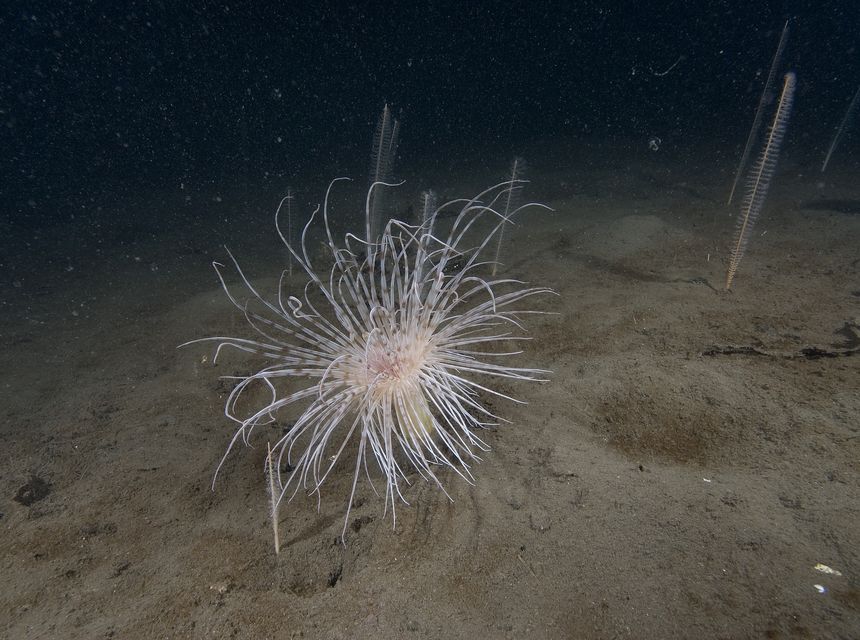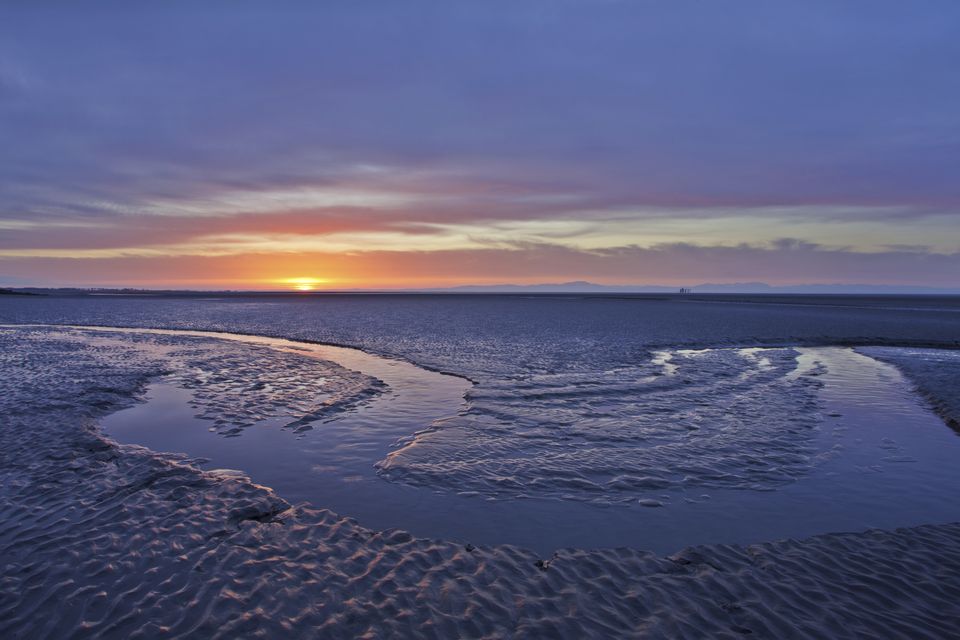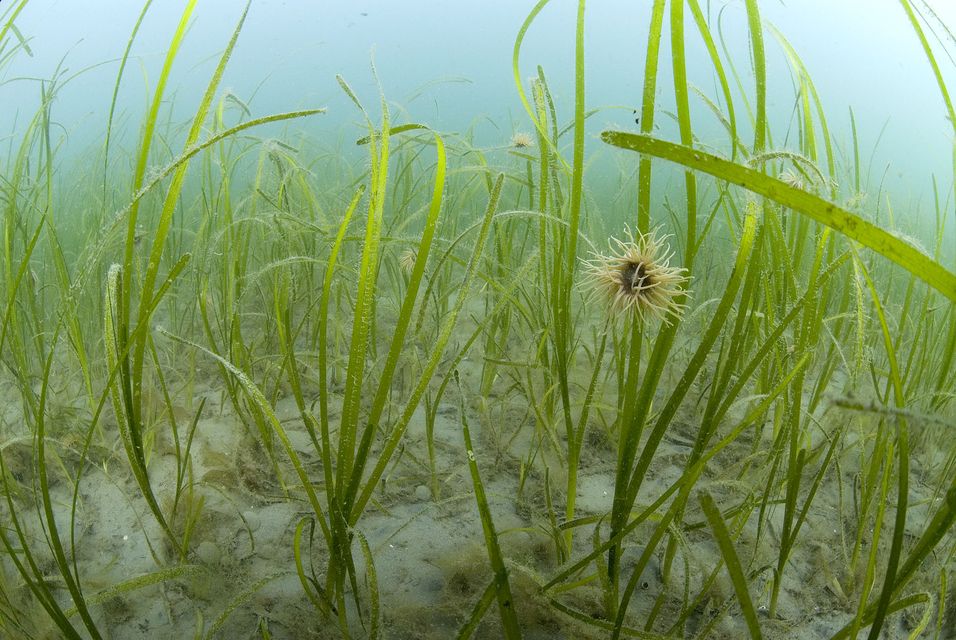The UK’s seas and coasts store hundreds of millions of tonnes of carbon, conservationists have said, as they called for better protection of marine habitats.
A new report on “blue carbon” estimates there are 244 million tonnes of organic carbon locked in the top 10cm of seabed sediments and in coastal habitats such as saltmarsh, kelp and seagrass beds.
The report, by the Scottish Association for Marine Science (SAMS) on behalf of WWF, The Wildlife Trusts and the RSPB, is the first time a country has estimated and mapped its marine carbon stores.
Most of the blue carbon is stored in seabed sediments which are also habitats for wildlife (Paul Naylor/PA)
The report estimates the vast majority of the total (98%) is found in the top layer of seabed sediments, though it adds some sediments are hundreds of metres thick, storing thousands of years’ worth of carbon, so their true storage is much greater.
The remainder of the 244 million tonnes is in coastal habitats, such as saltmarshes around the coasts of England and Wales, which “punch above their weight” as they make up just 1% of the area of the UK seas but store 1.7% of the ocean’s carbon.
Areas which are already designated for nature protection, such as marine protected areas (MPAs), store more than two-fifths (43%) of the organic carbon – 105 million tonnes – estimated to be in long-term storage in the seas.
Carbon is primarily absorbed by tiny plant-like organisms known as phytoplankton, which capture carbon dioxide through photosynthesis and drift to the bottom of the sea when they die, adding to the seabed sediment.
Mudflats at dawn in the Solway Firth, Dumfries and Galloway, Scotland (Mark Hamblin/2020Vision/PA)
UK seabed habitats could capture up to 13 million tonnes of organic carbon every year, which is almost three times the amount sequestered by the UK’s forests, although they cover a much smaller area than our seas, nature experts say.
But carbon stored in the seas could be released and worsen climate change, through disturbance by human activities such as bottom trawling, which still takes place in protected areas such as MPAs, dragging fishing gear along the sea bed and churning up the sediment in search of fish.
Seabeds are also disturbed by the installation of offshore energy such as wind farms, while coastal habitats are threatened by development and rising seas driven by climate change.
Conservationists are calling for better protection of the UK’s seas to prevent the release of the carbon they store and to conserve important wildlife sites, including seabed habitats, fish nurseries and feeding grounds for birds.
They want to see MPAs better managed, stopping damaging activities such as bottom trawling, for blue carbon to be considered in marine planning, and more investment and research allocated to protecting carbon locked in the seas.
Tom Brook, blue carbon specialist at WWF-UK, said: “This project reveals how critical our seas are in regulating the climate and underscores the urgent need to protect and restore our seabed habitats.
“While saltmarshes and kelp forests punch above their weight in terms of capturing carbon, the mud really is the star here – accumulating and storing vast amounts on the seabed.
“But we need to make sure it goes undisturbed for it to fulfil this critical function. Harmful activities such as bottom trawling must be stopped.”
The conservation groups behind the report are urging governments across the UK to strengthen the protection for blue carbon, warning that failing to stop disturbance to MPAs would threaten goals to stop the UK’s contribution to climate change and to protect 30% of the seas for nature by 2030.
Marine habitats such as seagrass also capture carbon (Paul Naylor/PA)
Kirsten Carter, head of UK marine policy at the RSPB, described the report as a “gamechanger” for knowledge of the marine environment and urged decision makers to act on its findings.
“To meet net zero and stop biodiversity decline we must work with nature, not against it.
“This means restoring habitats, properly planning offshore development, and investing in protected areas to safeguard wildlife and keep blue carbon locked up,” she said.
A spokesperson for the Environment Department (Defra) said: “Protecting our oceans, and the precious species that depend on them, is fundamental to a healthy and thriving environment.
“We will ratify a new Global Oceans Treaty to protect marine life, enforce bottom trawling restrictions in our Marine Protected Areas and ensure all catch limits are set sustainably.”


